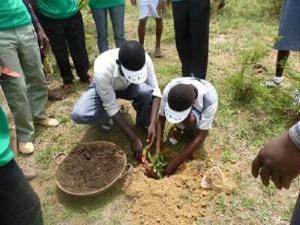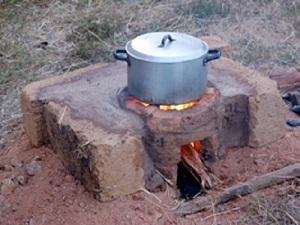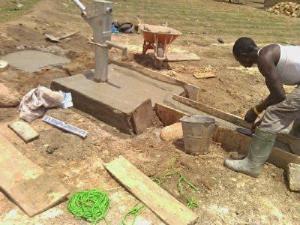Mary Ngozi Molokwu
Other projects
27 Mar 2008
Conservation Education and Capacity Building: Rural Participation in Conservation and Production of Fuel-Efficient Stoves
This project will increase environmental awareness and reduce environmental degradation and rural poverty through environmental education, tree-planting and provision of portable water.
Poverty and biodiversity loss are linked in several ways, one of which is the over-dependence of the rural poor on local natural resources. As a result, attempts to create awareness on biodiversity protection are usually met with opposition. To prevent this there is the need to undertake poverty alleviation schemes in parallel with environmental awareness programmes. This project is aimed at encouraging rural involvement in conservation and promoting sustainable livelihoods. The first phase of the project will involve holding meetings with interest groups to discuss the road map of the project activities.

This will initiate the environmental education process, as the significance and future impacts of the project will be discussed. Thereafter, a reappraisal of the previous fuel-efficient brick wood stove project will be conducted and questionnaires will be distributed to gather information on current level of environmental awareness, utilization of the already existing fuel-efficient stove with any identified problems and anthropogenic impacts on the forest stream. The seasonal stream that runs through the Reserve is utilized for washing and bathing, leading to deposits of harmful chemicals. During this project, a borehole will be constructed to provide an alternative source of water. A hydro-geological survey of lands provided by the local community will be carried out to evaluate suitability for borehole construction.

An area of land has been provided by the Laminga community for tree planting. Indigenous fast growing trees will be planted and existing trees and shrubs on the land will be allowed to grow undisturbed. 4000 trees will be planted. The youths of the community trained on environmental communication in the previous project's "train-the-trainer exercise" will conduct environmental education within the communities using their local dialect. This will be preceded by a refresher course by the project team, where power point presentations will be made to highlight the impacts of anthropogenic activities in other parts of the world. Also, school children from ages 6-12 will be taught by the project team on the importance of trees and other forest resources, using descriptive methods such as posters and practical demonstration. Outlet for wood sales in the cities will be identified and pamphlets and pictures of the fuel-efficient brick wood stove produced in the previous project will be produced for distribution to these outlets.
